
These days most of us grew up with an education provided by the State.
And most of us will have been warped by that education.
At least, such is the considered view of figures as wildly and radically opposed as Rudolf Steiner and Hilaire Belloc.
Wildly opposed: strange, mutually hostile figures meet in this weblog of mine.
For here we have the tragic figure of Steiner, who was relentlessly critical of the Catholic Church – and there is Hilaire Belloc, one of the most passionate and brilliant Defenders of the Faith the modern world has seen.
Wildly opposing figures meet in this weblog, I suppose, because they meet in my soul.
I cannot deny a certain debt to Steiner – even where I find him, as I say, a tragic figure.
One thing I received from Steiner in years past was his diagnosis of the illness of modern materialism, including the materialistic education which warps our souls and our children’s souls.
Now, Steiner’s remedy for that modern, materialistic illness leaves very much to be desired, this I know.
But if we look to the diagnosis and not the remedy, we also gain insight into the life journey of Valentin Tomberg.
For in his youth, Valentin Tomberg was had been Anthroposophist in the school of Rudolf Steiner. And yet he converted to Catholicism and developed a Catholic vision that in so many ways runs in parallel to Belloc’s.
And further understanding of Tomberg’s astounding conversion can be gained by considering this very problem of modern education by the State, by looking through the eyes of all three men.
This is because one thing that the Catholic Belloc and Tomberg share with Steiner is a burning concern for the degeneration of civilisation.
To illustrate this, I return to material cited before at this weblog, where we quoted paradoxical lectures from 1920, in which Steiner both condemned Catholicism and yet also praised its wakefulness in the strongest of terms.
Here, as I noted last time, Steiner spoke of a sensation that should be present in our hearts when we look out at modern civilisation – the sensation of feeling stung like a viper by materialism:
“I should be interested to know how many people felt as if stung by a viper when they read a certain sentence [which at the time, Steiner spoke had recently appeared in the German language press].
I should really like to know how many people, when reading this felt stung by a viper! The sentence runs:
‘Religion, which represents a fantastic reflex in the minds of human beings, concerning their relations one to another and to nature, is doomed to natural decay through the victorious growth of the scientific, clear and naturalistic grasp of reality, which is bound to develop parallel with the establishment of a planned society.’
This sentence is to be found in an article on the measures taken by Lenin and Trotsky against the Russian Catholic Church …
One knows for a certainty that the number of Lenin’s opponents, who feel as if stung by a viper on reading such a sentence is very small.
I want to emphasise this as not being without significance, because it brings out to what an extent modern humanity passes lightly over things, usually asleep – how it passes over the weightiest facts, facts which are decisive for the life of humankind on this earth [italics mine]…
And Steiner went on to amplify:
What is it that is to bring about the decay of the old religions one and all? It is all that has arisen during the last three to four centuries as modern science, enlightened science in the educational institutions of civilized humanity.
Bourgeois teaching and bourgeois methods of administration have been adopted by the proletariat.
What the teachers of the universities and high schools have put into the souls of humanity, comes out through Lenin and Trotsky.
They bring out nothing but what is already taught in the institutions of civilised humanity.
My dear friends, today … the primary necessity is no longer to allow our children and youth to be taught what has been taught right up to the twentieth century in our universities and in our secondary and elementary schools …
That is why one has to say that whoever reads a declaration such as the one I have just quoted, even if it only appears in a few lines of an article, should feel as if stung by a viper; for it is as if the whole situation of present day civilisation [italics mine] were illumined by a flash of lightning.”
Dear Lector, may I say again that I do not wish to speak in support of Anthroposophy.
However, it is hard for me to not admire the passion and intensity – and moral correctness! – with which Steiner observes:
The primary necessity is no longer to allow our children and youth to be taught what has been taught right up to the twentieth century in our universities and in our secondary and elementary schools …
And ironically, as we noted before, Steiner suggested that only the Catholic Church truly understood the danger to our souls and our children’s souls …
Before moving on, let us repeat this strange paradoxical statement made by a man who opposed the Catholic Church till the end of his life:
Since the middle of the fifteenth century, what has appeared as philosophy, science, public opinion, world conception, apart from the Roman Catholic Church, is for, the most part void of spirit.
It must be recognised that the Catholic Church has shown great foresight …
The Catholic Church long ago foresaw the [modern] social condition … the Catholic Church took her own measures to make her influences felt in these social conditions …
In face of the rising tide of naturalism [Rome] throws down the gauntlet before all this rising materialism … It demonstrates the only wakeful consciousness within our sleeping civilisation [italics mine]…
Modern civilization is asleep … Rome is awake … Rome was wide awake and made in advance her necessary preparations …
That Rome is awake is revealed by the mighty drama [of the seven decades previous to 1920] unrolled in the [1854] definition of the dogma of the Immaculate Conception; in the [1864] Syllabus condemning eighty modern truths; in the declaration of the Infallibility of the Pope; in the naming of Thomas Aquinas as the official philosopher of the Catholic priesthood; and finally in the anti-modernist Oath.”
Yet Steiner asserts that an all-dominating materialistic worldview, devoid of the Christian Mystery can only spell ruin for civilisation. In a clear reference to the aftermath of the First World War, he adds:
For if only the materialistic knowledge that has been developed in the last three to four centuries should continue to permeate human evolution … the present social chaos of the civilized world will repeatedly recur …
What science has been able to give humanity, since the middle of the fifteenth century has certainly been sufficient for the making of technical discoveries, has been sufficient to spread over the earth a network of commerce and business intercourse, but it does not suffice for the creation of social arrangements …
As long as an external, material science is alone recognized, so long will humanity be in the grip of chaotic social conditions.
Now, as poles apart as they are, we see one thing in common between Steiner and Belloc – the grave concern that if materialism prevails, so will chaotic social conditions – threatening human civilisation.
And we find the same very grave concern with Tomberg, most explicitly in his legal-political works, which also warn of the ruin of civilisation in the starkest terms.
And with each of these three men, there are what would appear to be staggeringly impossible proposals for solutions.
We have just seen that for Steiner, the ‘primary necessity’ is to bring to a halt the entire trend of modern education!
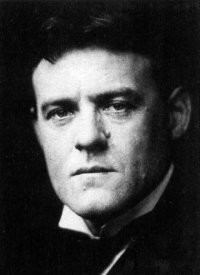
Meanwhile, Belloc set himself against such pillars of modern Capitalism as the practice of Usury …
And in his Catholic legal theses, Tomberg will say civilisation will be ruined unless our system of jurisprudence restores not simply Natural Law, but Divine Law!
How the vast majority of modern humanity will mock all this – and will mock souls such as myself who concern themselves with such utterly radical and apparently impossible proposals.
How utterly absurd to dream of a world where modern materialistic education is brought to a halt, Usury is eliminated and Divine Law is restored to jurisprudence!
And yet this website cannot side with the arguments of the modern world …
For I must take my side not with what the modern world deems viable, but with morality.
And Belloc, for example, makes the most powerful moral arguments that Usury is simply wrong.
And Tomberg uses compelling ‘moral logic’ to show that our society cannot continue with materialistic jurisprudence.
All this I want to explore as this weblog continues.
For as impossible as it sounds, both the Catholic Tomberg and Hilaire Belloc are pointing to nothing less than a Catholic Christian civilisation as the Salvation of the World – and there are many, many striking parallels between the two men’s thinking.
For the moment, I am incapable of any systematic comparison of Tomberg and Belloc’s visionary statements regarding Christendom renewed.
For now, all I can offer you, Lector, are some fragmentary notes, or even just fragmentary indications regarding what both Tomberg and Belloc envisaged in common.
And today, these fragmentary indications will continue with this theme of education as drawn from both Tomberg and Belloc’s thinking.
Now, as is well known, Steiner attempted to establish an alternative system of education which he called Waldorf education and which need not detain us here.
The Catholic Tomberg and Belloc, however, placed their confidence in Catholic education instead.
For upon leaving the Anthroposophical arena, Tomberg took his son out of Waldorf education and placed him in a Catholic school.
And in his legal theses, Tomberg advanced the notion that it is the Church, which must form education and not the State.
And both Tomberg and Belloc write powerfully not only of the cancer of materialism (both philosophical and commercial) – but also the tyranny of the modern State.
And here distinct parallels emerges between the Catholic Tomberg and Hilaire Belloc – for both wrote extensively on the tyranny of the Modern State – in regards to education as well as every thing else.
For Tomberg, this comes to the fore in his legal-political theses where he contrasts what he calls the Maximum State versus the Minimum State (which Minimum State, as we shall see, he suggests can become a Christian Minimum State).
Here we quote from Tomberg’s Foundations of International Law as Humanity’s Law. The emphasis in bold is Tomberg’s own; I have added the italics myself.
It is now very well known that a state has the tendency towards being all and wanting to be the meaning for everything, i. e. uniting in itself the functions of order, education and leadership.
The totalitarian (fascist-communist), maximum state wants to keep in its hand “religion-politics”, “culture-politics”, “education-politics”, “economy-politics”, and “law-politics”, i. e. it wants to transform all these fields into “politics”, so that culture should become culture-politics etc.
The liberal minimum state, on the other hand, represents the necessary amount of organisation for the creation and maintenance of a legal order, which serves the individual and protects an individual’s interests.
In principle, culture, economy and social-political conditions lie outside the state’s competence.
Individuals must serve the maximum state, but the liberal minimum state serves the individual.
It is a minimum state in the sense that individuals notice the state only to that degree as is absolutely necessary for the protection of their freedom.
In a minimum state, legislature, executive and judicative must shape public life only to the degree necessary to protect the private liberty (liberty outside the state) of all individuals.
This liberty, however, may be used in certain ways: Individuals, who are citizens of a liberal legal state, may use their freedom to choose obligations which for example, go hand in hand with Christian religion and the Church.
Then the state must serve the Church in the same way as it must serve every other use of freedom chosen by its citizens.
The liberal minimum state thus becomes a Christian minimum state.
The latter is in its meaning a legal order serving Christianity. It relates to the Church and the totality of cultural life as the body relates to the soul.
As the body serves the soul by providing it the location for a developing consciousness, so the Christian minimum state serves the Christian culture, represented and led by the Church.
The functions of education, cultural goals (leadership), the ordering of social conditions (e. g. family life) are not part of the duties of such a state: The state’s authority need only take care that the bodies of cultural, economic, and social life are being treated properly.
According to this viewpoint other cultural values precede the state as a value.
The state has the value of being a legal order – no other. One should eliminate everything “mystical” (e. g. the messianism of some states, its “divine mission”) which has been used to adorn the notion of a state – mostly very ambiguously.
The state is merely something that serves a purpose – the purpose of creating and maintaining a legal order.
The state should never be allowed to mean a kind of làicist church – a claim which, in reality, it actually makes by wanting to mean more than just a legal order.
It is characteristic that the more a state moves towards being a totalitarian state, the more it becomes hostile towards the Church.
The French Republic, for example, was explicitly hostile towards the Church, because it itself wanted to raise its citizens to be “citizens” with “citizen virtues” (instead of Christians with Christian virtues).

As a digression, may I interject here, that Tomberg is clearly suggesting that the French Republic – the fruit of the French Revolution – has at least been moving in the direction of totalitarianism. This is an important point in regards to much that I tried to express at this weblog (for example, in this entry about Our Lady of France here). And Tomberg only underscores the point with what he linking French Republicanism to what he writes next:
For the same reason, Hitler’s so-called Third Reich was hostile towards the Church: The people were to be educated in the national-socialist “conception of the world”, in order to become National-Socialists.
The same is true for the Soviet Union: Individuals there are to be raised to become communists, i. e. by the state’s means they are to be convinced to believe that Marxism’s historical materialism is the truth.
A state, however, should not be a community sharing the same conception of the world (i. e. a church), but a legal community.
As for the truth of historical materialism, appointed representatives of the humanities (history, philosophy, theology, sociology) surely know better than the party leaders who were elevated to state authorities.
But when they use the state apparatus not for legal purposes, but for purposes of the materialistic conception of the world it constitutes the claim of the state to be church.
It doesn’t change the facts if this church is a church of materialism: Whenever the spiritual church of Christianity is being fought against, it always constitutes a desire for another, opposite church.
The state must claim neither authority nor function of the Church nor authority nor function of academy.
It is not the state who decides the truth of a scientific claim, theory or hypothesis, and it is not the state who decides ethical, philosophical, theological and mystical matters.
That is the reason why the state must not be an educator, for education deals with the conception of the world, ethics and general knowledge and culture.
The function of education is not at all part of the state’s duties: It is the common task of Church and academia.
Of course, the state has to provide the external conditions required for education but it must only deal with external conditions, never with the content of education.
The state’s actual function is to order, i. e. to apply the law.
Anything more than that is a violation of state authority.
The state is not an organisation at all meant for ruling, but for serving. It is the ground underneath the feet of the people – not the sky arching above their heads.
What we have here is far, far more than I can adequately comment on now.
I can only commend it to your meditation, dear Lector.
However as I said above, I would like to give you fragmentary indications of a comparison I should like to develop in the future at this weblog – a comparison between the remarkably similar visions – and moral arguments! – of Valentin Tomberg and Hilaire Belloc.
And so I will leave you now with a fragment from Belloc and invite you to compare it with Tomberg’s statement’s above regarding the totalitarian ambitions of the modern State.
Each Modern State is but one among many rivals; yet does it claim greater powers than ever the State claimed before, and with those powers I submit that the Catholic Church must inevitably come into conflict sooner or later; not because the State is modern, but because [this State] claims unquestioned authority in all things.
I notice, for instance, that certain of our critics are particularly shocked by the admirable statement issued on the part of the English Catholic bishops just before the late General Election in Britain, where they say that it is no part of the State’s duty to teach, and add that authority over the child belongs not to the State, but to the parent.
Nothing could be more odious in the ears of modern Nationalism — because nothing is more true.
In the face of this tremendous claim of the Modern State, a claim which not even the Roman Empire made, the right to teach what it wills to every child in the community, that is, to form the whole mind of the nation on its own despotic fiat — our critics cannot maintain that the Modern State does not pretend to be “absolute.”
It is in fact more absolute than any Pagan state of the past ever was. What is more, its absoluteness increases daily; that is why its conflict with Catholicism seems to be inevitable.
The issue is very well stated when abhorrence is expressed [by implication] of a recent authoritative Catholic pronouncement, that “if certain laws are declared invalid by the Catholic Church, they are not binding.”
Here, as we have just seen, is the whole point. Where there is a conflict between civil law and the moral law of the Catholic Church, members of the Catholic Church will resist the civil law and obey the law of the Church.
And when this happens you get that active dissension between the Church and the State which history records in all the great persecutions. That was the very crux between the Roman Empire and the Catholic Church before Constantine.
In the eyes of the civil power the Christians were rebels; in the eyes of the Christians the civil power was commanding practices which no Catholic could adopt. It was demanding duties which no Catholic could admit.
That the quarrel has not yet broken out into open form (save here and there in the shape of a few riots) is due to the fact that hitherto the bulk of Catholic doctrines have been retained in States of non-Catholic culture.
But as the moral distance grows greater between the Catholic and the non-Catholic, as the Modern State reverts more and more to that Paganism which is the natural end of those who abandon Catholicism, the direct contrast cannot fail to pass from the realm of theory to that of practice.
It is inevitable there should appear in any Absolute State, not alone in States which still trust to the machinery of voting, but in all States, Monarchic or Democratic, Plutocratic or Communist, laws which no Catholic will obey.
One or two tentative efforts have already been made at such laws. When those laws are presented to Catholics there will at once arise the situation which has arisen successively time and again for nearly two thousand years; the refusal on the part of Catholics, which refusal in the eyes of the State is rebellion.
There will follow upon that what the State calls the punishment of disobedience, and what Catholics have always called, and will once again call, persecution.
It will be accompanied by considerable apostasy, but also considerable heroism; and in the upshot the Faith’s power to survive will lie in this: that devotion to the Faith is stronger, more rational, better founded, more tenacious, more lasting in substance, than that hatred which the Faith also, and naturally, arouses.
Foreword for Monarchy by Roger Buck
Buying Books at Amazon Through These Links Gives Us a Commission. This Supports Our Apostolate. Thank You if You Can Help Us Like This!

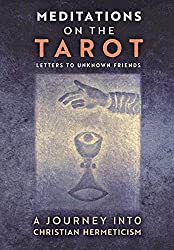
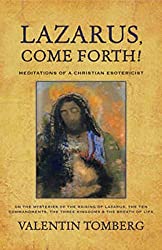
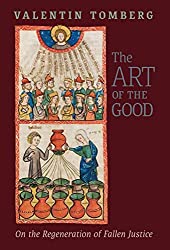
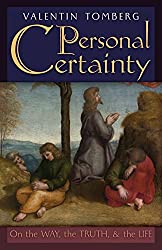
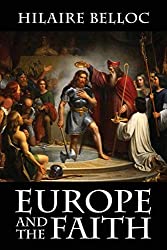
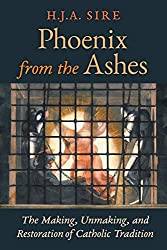

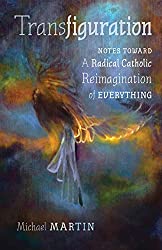
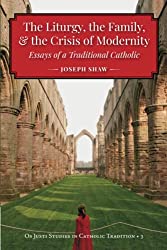
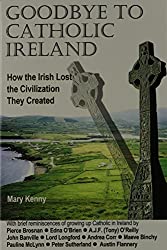






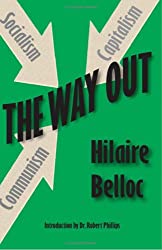

Comments
comments are currently closed
8 responses to “Steiner, Tomberg, Belloc: Education and Christian Civilisation”
Very nice post Roger! May I add another name to the list? My all time favourite, René Guenón, mentioned here and there in his books and his correspondence that Modern Education in fact prohibits people to grasp the symbolic way of though, thus closing Tradition away from them. He also saw the Catholic Church as the only hope for the West, and he considered that the formation of a Catholic Intellectual Elite was the priority before going further in the Traditional restoration. By the way, the Servile State by Belloc is a book that everyone should read. Great post (again)!
Blessings in Christ and Mary!
Juan, this is all very, very meaningful indeed. Without reading Guenón yet, I feel much sympathy with these thoughts about modern education stripping people of symbolic thinking and of course Catholicism and the West.
The Church with her Sacraments is desperately, desperately needed and yes profound thinkers are needed who can clear away the debris of modern thought that so obscures in people’s minds what that Church essentially is and what those Sacraments truly are.
As I once indicated to you, a friend is posting me Borella’s book on Guenón and I will be studying it in depth. I will also be seeking out Chesterton.
I have not forgotten my promise to respond further to your last comment. I will honour that, but it may take a few days longer, due to pressure.
Meanwhile I will just say that I am moved indeed to hear of your journey of return to the Church and Tradition and very much appreciate hearing your voice here.
Your repeated invocation of Our Lord and Our Lady also touches me. How fortunate you are to live in a culture where they are both still so honoured, compared to this English speaking world.
As I have also said before, I am haunted by your Latin Catholic culture which still honours so much that we Anglophones have thrown away and one thing I very much seek to understand better is how that culture can be more effective in the Anglo-American dominated world (perhaps slowly giving way to a China dominated world) …
Warm thanks, again!
[…] Christian Politics News- Christian Bias Selected excerpt FROM: https://corjesusacratissimum.org/2012/08/tomberg-belloc-education-and-the-state/ […]
[…] Cor Jesu Sacratissimum HomeAbout UsKim's WeblogRoger's WeblogWebburstsReviewsImagoArticlesUK StoreUS Store « “Don’t Vote for a Frenchman and a Catholic”: The Campaign Against Belloc Steiner, Tomberg, Belloc: Education and Christian Civilisation » […]
Hello Roger,
Interesting stuff…
I looked into the 1864 Syllabus that Steiner mentions in your quote. They can be found here: http://www.papalencyclicals.net/Pius09/p9syll.htm. This one particularly struck me:
X. ERRORS HAVING REFERENCE TO MODERN LIBERALISM
…
78. Hence it has been wisely decided by law, in some Catholic countries, that persons coming to reside therein shall enjoy the public exercise of their own peculiar worship. — Allocution “Acerbissimum,” Sept. 27, 1852.
I know you’re several steps away from stating your approval of all of these items, so I’m curious to know whether you’re in agreement with this one. It seems to me to be saying that non-Catholics should not be allowed to worship in public in Catholic countries. Was the Pope right or wrong here?
I’m also intrigued by the implications of Tomberg’s “minimum state” that provides only a legal order. Should the state not provide education, a National Health Service, social security? If not, does he envisage the Church and/or charitable institutions providing those things, or is it all the responsibility of individuals?
Dear David,
Good to have your voice here, old friend. And your attention to the issues invoked by the Syllabus of Errors and so much else that has burned in my heart over the years.
Re:
Was the Pope right or wrong here?
In my opinion – for what little that matters – the Pope was wrong, as Popes have been wrong many times before and will surely be wrong many times again.
But my opinion does not really matter inasmuch as The Church Herself has judged Bl. Pius IX wrong on this. And I am aim to form my conscience in accordance with the Magisterium of the Church.
It should be remembered that the Church claims infallibility for any new statements maybe once a century – meaning vast numbers of pronouncements have less than such.
I hesitate to say this, as it opens such a wedge for all kinds of disobedience, but there it is …
Here all this seems to me to inextricably connect with your comment on Kim’s most recent blog.
Yet Kim may take some time to reply to your other comment, due to the disability you know that she suffers.
I try to resist the temptation to say much, but somehow I do feel your comments to each of us are linked.
And thus in the interim, I will offer you my opinion that Tomberg’s attitude is quite different from what you suggest in your comment to Kim.
Tomberg of course knew the human hierarchy had all kinds of failings – but he still encouraged obedience to that hierarchy – very seriously indeed.
He says such again and again.
Not only is this attitude found repeatedly throughout his writing – but it is also echoes countless Catholic Saints (that Tomberg studied and loved).
As the Protestant you identify yourself as, I doubt whether you will have studied – and loved – those Saints in the same way as Tomberg has.
This is not a criticism at all – just a comment on the very different universes Catholics and Protestants inhabit.
For one sees again and and again in the lives of the Catholic Saints that the Saints have come continuously into conflict with the hierarchy in terms of what they held to be true – and yet they obeyed.
For them, conscience and reason indicated it was better to go with corporate, hierarchical conscience and reason, rather than their own individual conscience and reason.
It makes little sense to many a rational mind. a mind which can come up with an infinity of endless hypothetical scenarios of the things such as hypothetical conflict of individual and corporate conscience and reason …
For history proves Popes and the Hierarchy wrong again and again, the hierarchy flawed and failed repeatedly and yet the Saints go on obeying that hierarchy even when it contradicts their own experience.
Years, decades, centuries later even the Church decides that it was wrong and the obedient Saint was right …
I think one needs the sacrificium intellectus that Tomberg encouraged (e.g. on MotT pg 271) to appreciate the power and beauty of obedience to a hierarchy one sees is flawed and failed.
I am sure that Kim can add to this in time, for she understands the Trans-rational Mystery of Obedience more deeply than I do, and leads me ever deeper into it, while my rational mind shrieks and screams with my own infinity of endless hypothetical scenarios.
Now, in regards your question of Tomberg and the State.
With a close reading of the above, I think Tomberg has answered your question already re: education. The state should not provide it.
Rather, the responsibility of the Church is entailed.
As for the other aspects you invoke, he is more silent. I believe however that he was gravely concerned about the tyranny of both State and economy.
I think he would want not individuals, but higher institutions than either the State or the economy can provide, though these would be protected by the State.
Tomberg’s thinking, like Belloc’s and like Steiner’s is startlingly counter to many of our modern assumptions.
But although Tomberg does not say it as explicitly as Steiner or Belloc, I do feel he is saying the very same thing: our minds have been warped by modern materialistic education.
Again, thank you warmly for your engagement with these matters, old friend. Makes me feel just a little less lonely on this planet, I say with a tender smile …
Hello Roger,
You’re right, my questions were linked. No problem addressing them all here, if you want to. I understand it’s difficult for Kim to reply. Thanks for giving the time to it.
In cases where individual conscience and the dictates of the hierarchy conflict, I think there’s an important difference between abstaining from action (or speaking truth) you think is right because the hierarchy forbids it, and doing something you think is wrong because the hierarchy commands it. All the examples I can think of from my very limited knowledge of Catholic saints are of the first kind, and often mixed with a very understandable wish not to tangle with the Inquisition; I am thinking particularly of the way St Teresa of Avila writes here.
The second kind is far more troubling to me. What about those who went off to fight against the Muslims or the Cathars against their conscience? Or a hypothetical minister in a Catholic government in 1864 who felt compelled to make Protestant worship illegal? Or a priest today who feels compelled to advise a parishioner with HIV not to use a condom to avoid infecting their spouse? Surely these people are in a very difficult position: if they do what the church says, except in the rare cases covered by infallibility, even the church might later change its mind about whether they did right.
Incidentally, what is your take on the 1919 condemnation by the Holy Office of Theosophy and Anthroposophy, which I believe included a prohibition not only against joining those movements but even against reading their writings? I don’t understand why you don’t feel bound by the latter. Unless it’s been since rescinded without my knowledge, it appears to me that here you can only be giving your individual conscience priority over the church’s teachings (which I applaud, of course!). I can’t find the full wording of the prohibition, but “negative in omnibus” sounds pretty emphatic to me. Clearly there’s some subtlety I’m not understanding.
As a postscript, I’m not sure the category “saint” is helpful in the discussion. In the New Testament it applies to every Christian. The Catholic church has moved away from that and limited it to particular people who pass a set of criteria, one of which presumably requires obedience to the hierarchy. So of course in that sense obedience is going to be a hallmark of sainthood. I don’t say this to disparage those who have chosen to be obedient, not to claim any saintly qualities for the Reformers – Luther seems not have been a nice man, and Calvin was a despotic monster, though I do think there have been many saints (in the third, rather woolly popular sense) in the tradition since then.
Thanks for your thoughts on Tomberg and education – I am out of time for today I’m afraid, but will try and get back to it (and you have motivated me to read what Tomberg has to say on the matter).
Dear David,
Some opening things. Kim has now responded to you at her last blog entry here.
And for reasons you will appreciate because you know us personally, I think it best if we leave continued discussion of this between you and me.
Furthermore, I want to make a request to you, because we do know each other personally for many years and you are one of the very few people reading this weblog who can reach me by telephone.
My request is this – after my response below – can we please speak on the phone first before carrying this discussion further online?
This is not to stop online discussion at this site, but only to clarify some things before or if we continue.
I have reasons I think you will appreciate if we can speak. But briefly, I think I can clarify many of the matters you raise better and easier verbally. Moreover for reasons that I think will likely not be apparent to, the comments between us here are threatening to cross over into our long offline friendship and in ways which blur the line between personal and private and ways that I think do not help – again for reasons that will likely not be apparent to you (without my explanation that is).
That being said, I will attempt one more online response to you.
I am aware that in Kim’s response to you, you may feel that she has missed your point – which I think has to do with the potential for the diminution of personal conscience and responsibility.
However I think it is also possible that you might have missed her point.
I think that is worth considering.
Moreover if I am right that you missed her point, it may be because you and her are coming from such ‘alien universes’ as to be almost incomprehensible to each other.
So no faulting anyone here. If there is any truth to this that you might have both missed each other’s points, it may be because it would be surprising if you had got each other – given the vast differences between universes involved.
And again, I feel as I though I am communicating across the abyss of universes. For example, you write:
I’m not sure the category “saint” is helpful in the discussion. In the New Testament it applies to every Christian.
But Dave, this is a Protestant perspective. To which you are entitled!
But what you are not so entitled to do – if you are doing that? – is ask me to drop my Catholic perspective – in favour of yours – on my own Catholic website and not think of the Catholic Saints as I contemplate things such as the trans-rational Mystery of Obedience!
Further you give a premise as to why that should be dropped.
That premise would seem to amount to the idea that we have nothing more than a tautology here: the Catholic Church defines Saints as those who obey the hierarchy; Saints are those who obey the Catholic hierarchy.
Again Dave, if you hold that there is nothing much more than tautology involved here, you are certainly entitled to hold that view and to champion what appears true to you.
But you cannot expect me to hold or buy it! And I think there may be at least an unconscious expectation here that I will respond to this tautological argument, maybe buy it, even a little … (Needless to say, I would hope, with my premises, I don’t buy it at all.)
My point is not so much to do with these thoughts about Saints that I just quoted from you, but more to point to an entire tendency I feel throughout your comments.
There feels to me an insistency to look at these problems through a Protestant spirit that I simply do not share with you (anymore). I certainly used to – but as I say I have renounced such (with great difficulty and suffering, I will add. Sacrificium intellectus is tough stuff.)
This is something I tend to think (?) happened between you and Kim – you went straight into this challenge of hypothesis of what happens when the hierarchy is wrong, instead of following her point that Catholics are starting from a very different place.
Kim has felt a need to call attention now to her very different starting point. That she is talking about obeying conscience through the hierarchy and she has added Tomberg’s quotes about the Mystery of Infallibility and that:
“the Church is hierarchic-theocratic.”
The point I am trying to make is what to do when or if our premises – our starting points – are so different, indeed alien to one another’s?
A tough and potentially heart-rending challenge but one better acknowledged and conscious, I think you will agree, than unacknowledged and unconscious …
For example, what if you had a Protestant Christian blog with your own perspectives on it, and you began critiquing the Catholic view that God expresses himself through hierarchy.
And I were to come back to that with MY Premises – that as Tomberg puts it The Church is hierarchic-theocratic etc
Would I get anywhere, make any progress with you? I think not.
Non-sequiturs would result and I think we are maybe both in danger of such.
Your tautological argument above is for example a complete non-starter for me and I may well be guilty of the same as my arguments (e.g. sacrificium intellectus) are non-starters for you.
And again our whole personal story comes into this, which is why I ask you for a clarifying phone call …
So we have these vastly different premises here and nothing can be gained by my appealing to you to exclude your premises or you appealing to me to exclude my premises.
And I feel this abyss between the universes – before I even get to your questions. If I may be frank, your questions feel loaded to me with assumptions – loaded at every turn – and whether these assumptions are right or wrong is not the point here.
Many of the assumptions may be entirely right, but again that is not my point.
My point is that I clearly don’t share these assumptions with you. Whether they are right or whether they are wrong is not the point – only that I don’t share them with you.
I apologise if I am being overly repetitive, but I do hope to make this clear. (And as a final note on this matter of non-sequiturs from different premises, I have a blog where Belloc admirably makes that point here).
In all of this, it may appear to be hopeless talking. And perhaps it is. But I think personally we might get somewhere speaking on phone.
But whether hopeless or not, I will try some further response.
There are many issues here.
One issue – and maybe the least important issue of all, is what Tomberg would make of this.
So we will move onto more important things in a moment.
But in addition to my emphasis on what Kim quoted to you about Tomberg writing as to the hierarchic-theocratic nature of the Church etc, there is one further point I would make to you regarding Tomberg.
In the Eighth Letter Tomberg speaks as to how he has had to renounce so much of what he wants to say, given that he is writing 22 letters and not 22 books.
And even if he had not said that, this is what I feel and perhaps you will be able to feel something in accord with me.
Tomberg is writing Meditations on the Tarot at the end of his life, as a final summa as it were.
He is very conscious I think of what he puts into the book and what he doesn’t put in the book (pregnant phrase that).
In other words, one can gain insight into Meditations on the Tarot both from what is present there as well as what is not present there.
What is not present it seems to me is very much the kind of arguments you are advancing.
He does not devote his last precious time on this planet to matters like eliminating Catholic definitions of Sainthood as tautological or to hypotheses of what would have happened, what might happen if are in conflict with the Catholic hierarchy.
Or as I wrote above concerning:
an infinity of endless hypothetical scenarios of the things such as hypothetical conflict of individual and corporate conscience and reason …
Instead, he speaks repeatedly about the need for obedience and that hierarchy is indispensable.
Now Dave, because as I shared Protestant perspectives similar to yours for years, things like this – Tomberg’s silence on such, etc – became a source of enquiry, indeed a cause of meditation to me for years.
Listening to what he is saying and really thinking about what he is not saying. I mean that: really, really, trying to deeply think about what he is not saying …
I invite you to the same. I can do no more.
But I want to move beyond the simple issue here of what Tomberg thought.
I want to see if I can go more to the core.
The core I think I see here throughout all your comments involves concern for the diminution of conscience in favour of (a blind) obedience.
I think all of us, Tomberg, Kim, you and I can agree: such is not a good thing!
Such is an evil …
But from my premises – not necessarily yours – this diminution is not at all what we – Tomberg, Kim and I – mean by obedience!
If it were, obedience would not be obedience – free and voluntary – but subjugation of the will!
Tomberg is not speaking about subjugation and neither am I.
Rather I am pointing to a way in which obedience represents the augmentation of conscience, not its diminution.
However David, to be frank, throughout your comments, it is as though I feel that idea of augmentation of conscience through obedience is being excluded, maybe unconsciously, given that it may be so alien to you.
But to be frank, it seems to me that whether it is conscious or not, you are involved an “either-or” that is again, a non-sequitur, a non-starter, given my premises (obviously not yours!)
For example, I was most struck by your line about:
giving your individual conscience priority over the church’s teachings (which I applaud, of course!)
This seems a clear example of “either-or”.
You are applauding priority of one over the other.
Everything Kim, myself and I believe Tomberg are trying to indicate is not to do with this “either-or”, but “both-and”.
There are stories of Catholic Saints in recent centuries, the incredible Padre Pio, for example, which illustrate what I’m getting at.
These have nothing to do the Inquisition and the various premises by which perhaps (?) you are seeking to ‘explain away’ Catholic obedience …
But I am not sure there is any further point in invoking such Saints.
Again, our premises, our universes seem so far apart.
Really I would like to go further by phone.
Again, this does not mean that I do not want you to say more online at this site about this.
But I want to ask you to wait till we can speak again, partly because I think it may be far more helpful than these online exchanges, but again also because I am concerned about public and personal lines being blurred here.
There are many secondary things I can clarify then, including for example the implications of the index of forbidden literature being abolished in the 1960s.
But all this is very, very secondary to the main issue here, I think, as to whether what we are speaking of is “either-or” (Either the individual conscience or Church Teaching) or “both-and” (which is the augmentation of individual conscience through obedience to a hierarchic-theocratic Church).
And given our apparently wildly different premises/universes here, I am not sure how far we can get by phone.
But I do think it is likely to get us further than these online exchanges (without that phone call first).
I look forward to when we next speak, old friend!